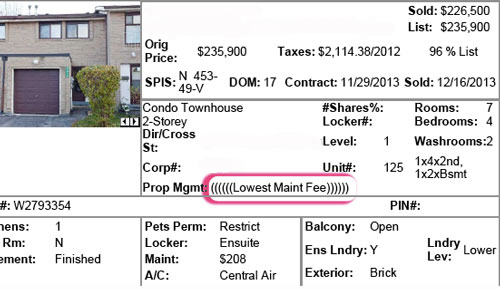

| 2008 |
2009 |
2010 |
2011 |
2012 |
| $649,254 |
654,019 |
654,019 |
654,019 |
661,286 |
| Special assessment | ||||
| 129,992 | ||||


| 2008 |
2009 |
2010 |
2011 |
2012 |
| Assets |
||||
| $215,911 | 224,733 | 418,054 | 178,669 |
20,748 |
| Operating Fund (year end balance) | ||||
| $38,547 | 46,175 | 53,877 | -550 | -98,415 |
| Reserve Fund (year end balance) | ||||
| $99,949 | 81,328 | 307,577 | 121,647 | $ 11,298 |
| Reserve Fund (year end deficit, as per Reserve Fund Study) | ||||
| -$199,268 | -207,654 | -569,830 | -721,431 | |